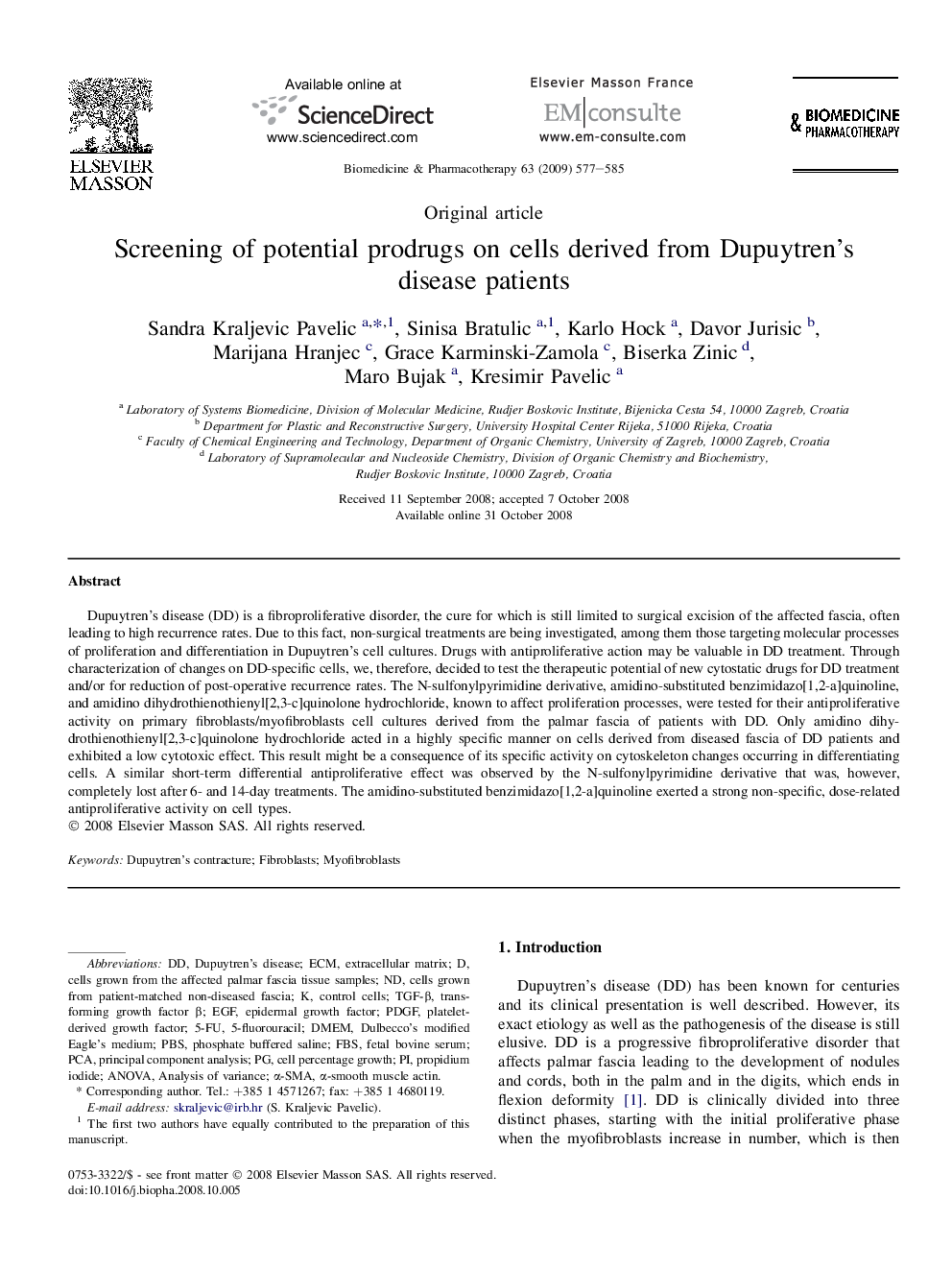| Article ID | Journal | Published Year | Pages | File Type |
|---|---|---|---|---|
| 2525134 | Biomedicine & Pharmacotherapy | 2009 | 9 Pages |
Dupuytren's disease (DD) is a fibroproliferative disorder, the cure for which is still limited to surgical excision of the affected fascia, often leading to high recurrence rates. Due to this fact, non-surgical treatments are being investigated, among them those targeting molecular processes of proliferation and differentiation in Dupuytren's cell cultures. Drugs with antiproliferative action may be valuable in DD treatment. Through characterization of changes on DD-specific cells, we, therefore, decided to test the therapeutic potential of new cytostatic drugs for DD treatment and/or for reduction of post-operative recurrence rates. The N-sulfonylpyrimidine derivative, amidino-substituted benzimidazo[1,2-a]quinoline, and amidino dihydrothienothienyl[2,3-c]quinolone hydrochloride, known to affect proliferation processes, were tested for their antiproliferative activity on primary fibroblasts/myofibroblasts cell cultures derived from the palmar fascia of patients with DD. Only amidino dihydrothienothienyl[2,3-c]quinolone hydrochloride acted in a highly specific manner on cells derived from diseased fascia of DD patients and exhibited a low cytotoxic effect. This result might be a consequence of its specific activity on cytoskeleton changes occurring in differentiating cells. A similar short-term differential antiproliferative effect was observed by the N-sulfonylpyrimidine derivative that was, however, completely lost after 6- and 14-day treatments. The amidino-substituted benzimidazo[1,2-a]quinoline exerted a strong non-specific, dose-related antiproliferative activity on cell types.
